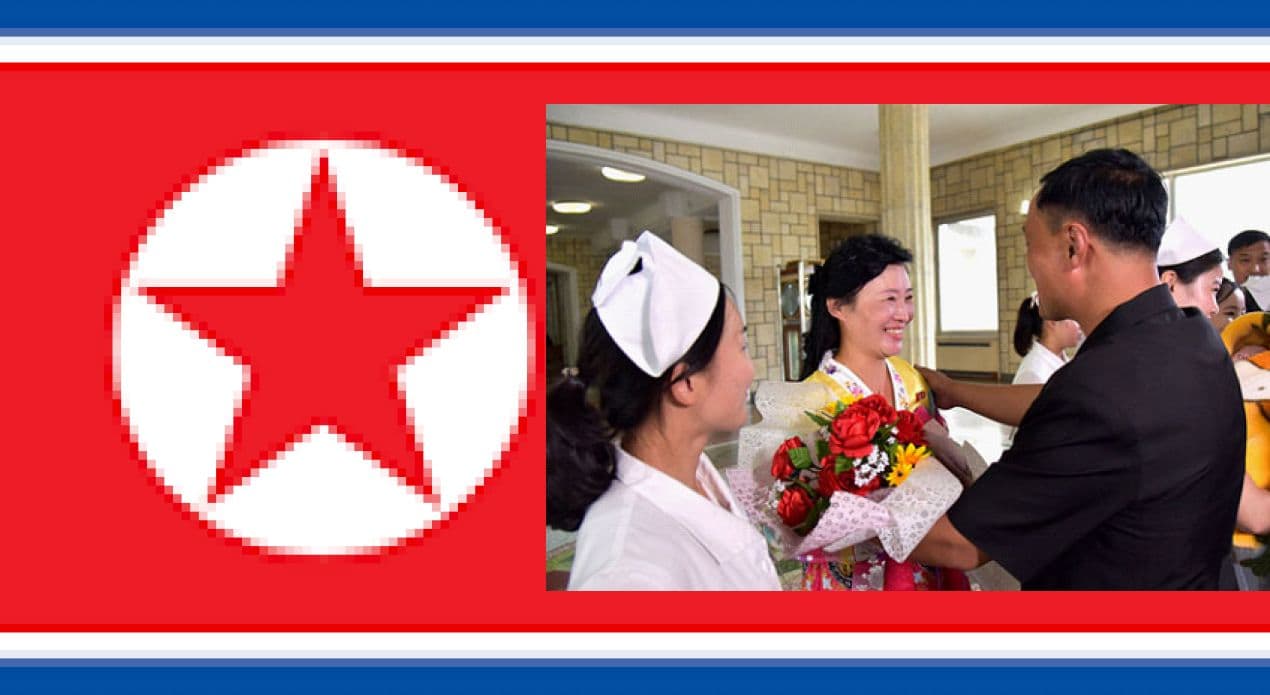
The September 1 issue of Rodong Sinmun, a major newspaper of the DPRK, carried an article titled “547th Triplets Leave Pyongyang Maternity Hospital.” The brief article runs in part: The triplets (two girls and one boy) left the hospital on August 31 amid a warm send-off from the medical staff.
Jong Un Hui, the mother of the babies, lives in Phyongsan County town in North Hwanghae Province.
As soon as she was diagnosed in March as being pregnant with triplets, Jong was referred to the Pyongyang Maternity Hospital.
At birth the triplets weighed 2.03kg, 1.62kg and 2.11kg respectively. They were in care in incubators. When they left the hospital, they were all in good health, each weighing more than 4kg.
And the babies and their mother were presented with gold rings and silver daggers by the state as gifts.
The birth of triplets is regarded in the DPRK as a good sign of national prosperity and special measures are taken for them. When women are confirmed as being pregnant with triplets, they are promptly delivered to the maternity hospital, sometimes by airplanes. Triplets are brought up in the hospital until their weight reaches to normal. Even after they leave the hospital, they come under the exclusive care of a doctor and a nurse at state expense at baby homes and orphanages and are provided with adequate living conditions.
State benefits are not given to the mothers of triplets alone.
Inaugurated in July 1980, the Pyongyang Maternity Hospital is a modern, comprehensive medical centre for women. Korean women call the hospital their “parents’ home”. Since it was opened to service, a large number of women have received a wide variety of medical services. Free medical service is given to the nursing mothers and all other inpatients. In addition, a well-arranged system is in place to provide nursing mothers with tonics, medicines and nutritional foods, all at state expense. About ten years ago the Breast Tumour Institute of the Pyongyang Maternity Hospital equipped with high-end facilities was built to promote women’s health.
Recently, the country has established a system of providing the families with many children with preferential treatment in various aspects of life including medical service. Women with many children are awarded high official commendations. Honour titles are conferred on those who have brought up their children admirably.


